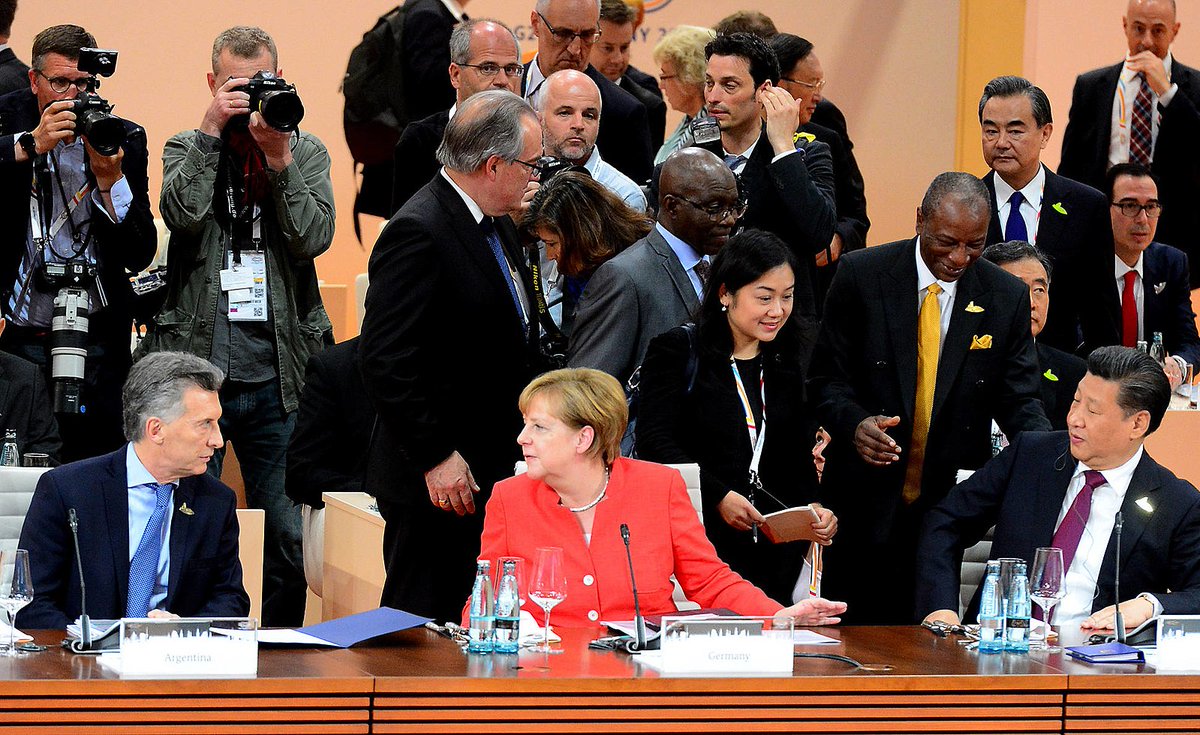
Western liberal democracies do not have to chose between naive China engagement or blind confrontation.
Western politicians and policymakers have repeated this false dichotomy ad nauseam.
Let me explain why this *binary and reductionist approach to China policy* is flawed /1
Western politicians and policymakers have repeated this false dichotomy ad nauseam.
Let me explain why this *binary and reductionist approach to China policy* is flawed /1
Unconditional China engagement is naive since under the conditions of increasing CCP censorship western dialogue with China is no longer free & open-ended. Cooperation with China does not deserve this name when Europeans cannot select their cooperation partners & topics freely /2
That does not mean that the only alternative is blind confrontation and interventionism aimed at regime change, Steve Bannon-style. Chinese citizens have to decide themselves what kind of political system they want to live in. This is not a decision outsiders can make for them /3
In my view #CCP #China #constrainment is the future of Western China policy.
#Constrainment is more than containment with a 's' and an 'r' thrown in for good measure.
What does #CCP #China #constrainment mean? /4
#Constrainment is more than containment with a 's' and an 'r' thrown in for good measure.
What does #CCP #China #constrainment mean? /4
When dealing with 'official China' - the party-state and its affiliated institutions - liberal democracies around the world should provide
- incentives for good behaviour,
- deterrence of bad behaviour, and
- Magnitsky sanctions on senior CCP officials when deterrence fails /5
- incentives for good behaviour,
- deterrence of bad behaviour, and
- Magnitsky sanctions on senior CCP officials when deterrence fails /5
A key requirement is that the West needs to incur penalties for authoritarian transgressions by the Chinese Communist Party (h/t @_JakubJanda).
To avoid any misunderstanding: This *does not* mean an eye for an eye but it should also not mean simply turning the other cheek /6
To avoid any misunderstanding: This *does not* mean an eye for an eye but it should also not mean simply turning the other cheek /6
While turning the other cheek is a noble sentiment, Western politicians and policy makers should not simply respond to injury without mounting a robust defence and thus accepting more injury. To borrow a sports metaphor: to win one has to play both offence *and* defence /7
In order to develop such a sensible & middle-of-the-road Western China policy politicians and diplomats need to become more *conflict capable*.
They also need to draw clear *red lines* which the Chinese Communist Party must not cross (e.g. an annexation of Taiwan by force) /End
They also need to draw clear *red lines* which the Chinese Communist Party must not cross (e.g. an annexation of Taiwan by force) /End
@threadreaderapp unroll
• • •
Missing some Tweet in this thread? You can try to
force a refresh




